 Petzlover
Petzlover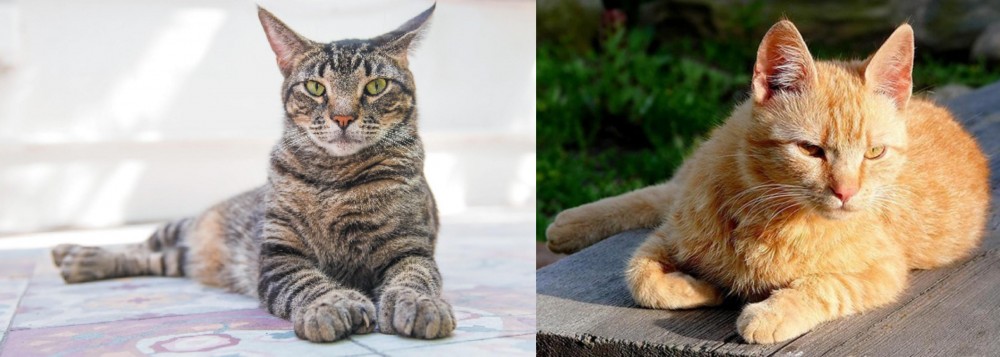 American Polydactyl is originated from United States but Brazilian Shorthair is originated from Brazil. Both American Polydactyl and Brazilian Shorthair are having almost same weight. American Polydactyl may live 4 years less than Brazilian Shorthair. Both American Polydactyl and Brazilian Shorthair has same litter size. Both American Polydactyl and Brazilian Shorthair requires Low Maintenance.
American Polydactyl is originated from United States but Brazilian Shorthair is originated from Brazil. Both American Polydactyl and Brazilian Shorthair are having almost same weight. American Polydactyl may live 4 years less than Brazilian Shorthair. Both American Polydactyl and Brazilian Shorthair has same litter size. Both American Polydactyl and Brazilian Shorthair requires Low Maintenance.
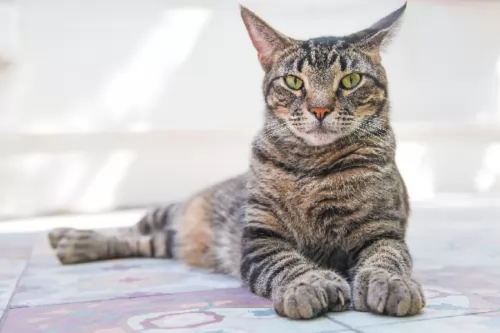 It is believed that this unusual cat came to the United States on ships – kept by sailors who thought of them as a good luck charm and to keep the mice population under control.
It is believed that this unusual cat came to the United States on ships – kept by sailors who thought of them as a good luck charm and to keep the mice population under control.
These unusual cats became popular in the 1800s as ship cats but the cats soon began to be seen in port cities on the Eastern coast of the United States as well as Canada, and their numbers began to increase.
It is also believed these interesting cats were brought specifically to the Boston area.
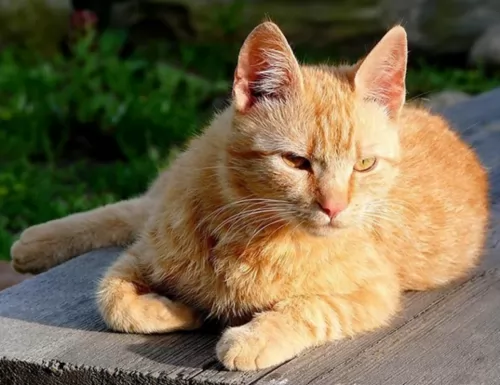 This attractive purebred cat is the first cat from Brazil to get international recognition.
This attractive purebred cat is the first cat from Brazil to get international recognition.
It is amazing that this cat goes back to the streets of Brazil as a feral cat. Centuries ago, when the Portuguese arrived in Brazil, they brought cats with them.
It was in the 1980s that a Brazilian cat breeder wanted to transform certain street cats into purebred cats and the Brazilian Shorthair emerged from these efforts. In 1998, the World Cat Federation gave the cat ‘approval breed’ status.
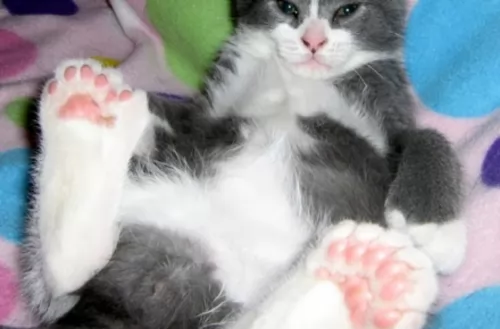 The Polydactyl cat is unusual in that the cat has been born with something odd about it. It has more than the regular number of toes on just one or more of its paws.
The Polydactyl cat is unusual in that the cat has been born with something odd about it. It has more than the regular number of toes on just one or more of its paws.
Normal cats have a sum of 18 toes, with 5 on the front and 4 on the back but with Polydactyl cats you may find as many as 9 digits on their front and back paws.
American Polydactyl cats are medium to large in size with strong, muscular bodies. The cat can weigh up to 6kg. The head is broad, the ears wide-set and pointed and the coat can be any color, pattern and length.
These cats are easy-going, relaxed, and social. They’re hardy too and they’re able to enjoy being outdoors and indoors.
They’re affectionate with their human family and are also playful and energetic. It is prepared to be friendly with dogs and children too, but it is also able to act independently and get on with things. The Polydactyl cat is distinctive but also a very popular cat breed.
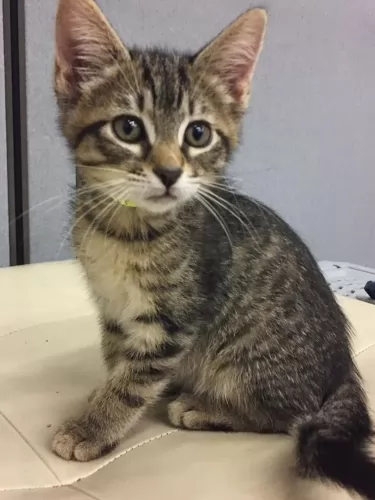 The Brazilian Shorthair is a purebred, medium to large sized cat that can weight between 5 nd 10kg. He is a thick-set cat that is muscular and strong and elegant to look at. The short coat comes in a variety of colors and patterns such as grey, black, orange, white and tan. The coat doesn’t require much grooming, but it is always beneficial to your cat to gently brush him to remove any excess hair there is. This cat has got such beautiful expressive eyes that you feel as if he wants to communicate with you sized cat
The Brazilian Shorthair is a purebred, medium to large sized cat that can weight between 5 nd 10kg. He is a thick-set cat that is muscular and strong and elegant to look at. The short coat comes in a variety of colors and patterns such as grey, black, orange, white and tan. The coat doesn’t require much grooming, but it is always beneficial to your cat to gently brush him to remove any excess hair there is. This cat has got such beautiful expressive eyes that you feel as if he wants to communicate with you sized cat
This is an adaptable cat that is able to adjust to the lifestyle you provide him with. He is an outgoing, intelligent, and inquisitive cat and enjoys the company of his human family, whether that includes children and other pets.
He gives a lot and expects lots of attention back from his humans. He is an inquisitive cat and loves to be going on his own adventures exploring.
He loves life and won’t enjoy a lifestyle where he is expected to lie around most of the day. He is intelligent and can learn tricks, and even though he is an elegant looking cat, he likes being active, spending time outdoors, and putting his hunting skills to the test.
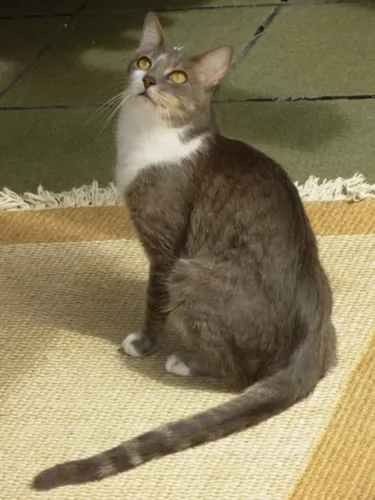 The Brazilian Shorthair makes a great choice for a loyal feline companion and he is a good looking cat too. They love human contact and love spending time with their human family, getting on well with the children in the home as well as other pets.
The Brazilian Shorthair makes a great choice for a loyal feline companion and he is a good looking cat too. They love human contact and love spending time with their human family, getting on well with the children in the home as well as other pets.
They don’t shed a lot either and therefore require little grooming. They’re adaptable pets too and become used to their different environments, loving to explore new places and even meeting new people.
They’re intelligent and can learn a few tricks that you’d normally teach a dog. As an intelligent cat, it loves to be challenged.
With so much going for him, no wonder the friendly, adaptable Brazilian Shorthair cat is such a popular breed as a domesticated house cat.
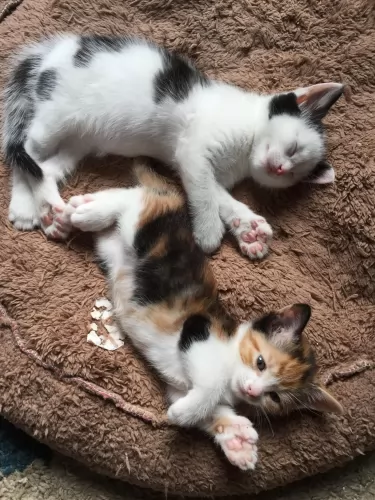 With good care, these cats can live to be between 14 and 16 years of age. You need to be diligent with keeping this cat’s nails trimmed because depending on the placement of the toes, the nails could become a nuisance, growing in the wrong direction and cutting into he cat’s flesh.
With good care, these cats can live to be between 14 and 16 years of age. You need to be diligent with keeping this cat’s nails trimmed because depending on the placement of the toes, the nails could become a nuisance, growing in the wrong direction and cutting into he cat’s flesh.
Keep the nails trimmed as necessary. To avoid possible injury to your pet, your veterinarian can safely trim your cat’s claws.
Always pay attention to your cat's behavior as well as taking note of your cat when you groom him as both are good ways to discover whether anything is amiss with your polydactyl cat.
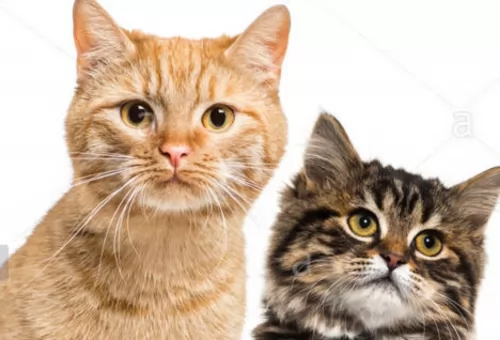 Keep an eye on your cat’s paws as their extra toes can make it that they are at a higher risk of hooking on a carpet or some other material, but this can be managed with regular nail trimming.
Keep an eye on your cat’s paws as their extra toes can make it that they are at a higher risk of hooking on a carpet or some other material, but this can be managed with regular nail trimming.
Provide your cat with all the things he needs to make his life pleasant while in your care. He’ll need feeding and drinking bowls, a nice warm, dry bed, a litter box, stimulating toys, and things such as a scratching post and cat climbing tree.
Cats are meat-eaters, and they need protein from meat for health. Some cooked chicken and beef can be a real treat for your pet. Grains and carbohydrates should only play a very small role in your pet’s diet. Too many grains can lead to malnutrition and obesity as well as problems with your cat's organs.
Always take into account your cat’s age because different life stages mean different energy levels and therefore different nutritional needs.
Take your sick cat to the vet when you see he is not his usual self. Make sure you keep up to date with all his vaccines and anti-parasite treatments.
One of the most important health decisions you’ll make for your Polydactyl cat is to have your pet spayed or neutered. The procedure is common and performed in your vet’s office every day.
It offers lifelong health benefits. It improves your pet’s behavior and keeps them close to home too. Spaying a female cat will prevent uterine infections and breast cancer, and for males, it can prevent testicular cancer.
Best of all, it helps to prevent yet more kittens into a world overrun with stray cats and rescue centers jam-packed with unwanted kittens and cats.
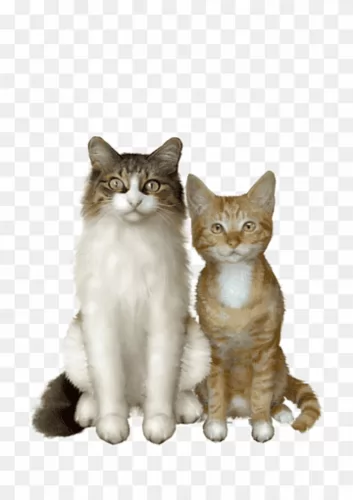 The Brazilian Shorthair has a short coat and won’t require too much grooming, although a gentle brush once a week is enjoyable. It becomes a bonding time with his owner and it keeps the coat free from dust and loose hairs.
The Brazilian Shorthair has a short coat and won’t require too much grooming, although a gentle brush once a week is enjoyable. It becomes a bonding time with his owner and it keeps the coat free from dust and loose hairs.
Check inside your cat’s mouth and make sure that all his pearly whites are just that. Sometimes a rotten tooth that he can’t tell you about can be a tremendous course of discomfort and pain. Also, check inside the ears for dirt and infection.
You can learn to clean the inside of the ears yourself but if you don’t want to do it, your vet or pet groomer can do these things for you – clip the nails of your pet, check the teeth for dental disease and check inside the ears.
Cats are carnivores, so they require animal protein for good health. Wet or dry commercial manufactured cat foods are super convenient and the best ones are excellent for your pet.
If you feel clueless about what to feed your cat, speak to your veterinarian who will guide you on the right food to give your pet. Certainly, your cat will need meat to get the nutrients he so badly needs.
The amount of food your cat needs to eat each day will depend on his age, weight, and activity levels. You want to get the correct amount of food right as obesity is a common health issue with cats and can contribute to a shorter life span. Always make sure your cat has access to fresh, cool drinking water.